American Folk Music and Musicians Series
series editor: ralph lee smith
1. Wasnt That a Time! Firsthand Accounts of the Folk Music Revival , edited by Ronald D. Cohen. 1995, paperback edition, 2002.
2. Appalachian Dulcimer Traditions , by Ralph Lee Smith. 1997, paperback edition, 2001.
series editors: ralph lee smith and ronald d. cohen
3. Ballad of an American: The Autobiography of Earl Robinson , by Earl Robinson with Eric A. Gordon. 1998.
4. American Folk Music and Left-Wing Politics, 19271957 , by Richard A. Reuss with JoAnne C. Reuss. 2000.
5. The Hammered Dulcimer: A History , by Paul M. Gifford. 2001.
series editors: ronald d. cohen and ed kahn
6. The Unbroken Circle: Tradition and Innovation in the Music of Ry Cooder and Taj Majal , by Fred Metting. 2001.
7. The Formative Dylan: Transmission and Stylistic Influences, 19611963 , by Todd Harvey. 2001.
series editor: ronald d. cohen
8. Exploring Roots Music: Twenty Years of the JEMF Quarterly , edited by Nolan Porterfield. 2004.
9. Revolutionizing Childrens Records: The Young Peoples Records and Childrens Record Guild Series, 19461977 , by David Bonner. 2007.
10. Paul Clayton and the Folksong Revival , by Bob Coltman. 2008.
11. A History of Folk Music Festivals in the United States: Feasts of Musical Celebration , by Ronald D. Cohen. 2008.
12. Ramblin Jack Elliott: The Never-Ending Highway , by Hank Reineke. 2010.
13. Appalachian Dulcimer Traditions: Second Edition , by Ralph Lee Smith. 2010.
14. A Pete Seeger Discography: Seventy Years of Recordings , by David King Dunaway. 2011.
15. The Ballad Collectors of North America: How Gathering Folksongs Transformed Academic Thought and American Identity , edited by Scott B. Spencer. 2012.
16. Arlo Guthrie: The Warner/Reprise Years , by Hank Reineke. 2012.
Arlo Guthrie
The Warner/Reprise Years
Hank Reineke
American Folk Music and Musicians, No. 16

The scarecrow press, inc.
Lanham Toronto Plymouth, UK
2012
Published by Scarecrow Press, Inc.
A wholly owned subsidiary of The Rowman & Littlefield Publishing Group, Inc.
4501 Forbes Boulevard, Suite 200, Lanham, Maryland 20706
www.rowman.com
10 Thornbury Road, Plymouth PL6 7PP, United Kingdom
Copyright 2012 by Hank Reineke
All rights reserved. No part of this book may be reproduced in any form or by any electronic or mechanical means, including information storage and retrieval systems, without written permission from the publisher, except by a reviewer who may quote passages in a review.
British Library Cataloguing in Publication Information Available
Library of Congress Cataloging-in-Publication Data
Reineke, Hank, 1961
Arlo Guthrie : the Warner/Reprise years / Hank Reineke.
p. cm. (American folk music and musicians ; No. 16)
Includes bibliographical references and index.
ISBN 978-0-8108-8331-4 (cloth : alk. paper) ISBN 978-0-8108-8332-1 (ebook)
1. Guthrie, Arlo. 2. Folk singersUnited StatesBiography. I. Title.
ML420.G978R45 2012
782.42164092dc23
[B] 2011053499
 The paper used in this publication meets the minimum requirements of American National Standard for Information SciencesPermanence of Paper for Printed Library Materials, ANSI/NISO Z39.48-1992.
The paper used in this publication meets the minimum requirements of American National Standard for Information SciencesPermanence of Paper for Printed Library Materials, ANSI/NISO Z39.48-1992.
Printed in the United States of America
To my wife, Christa, who makes everything possible.
Series Editors Foreword
This is Hank Reinekes second contribution to the American Folk Music and Musicians Series, following on his biography Ramblin Jack Elliott: The Never-Ending Highway. It joins other biographical studies, such as Bob Coltmans Paul Clayton and the Folksong Revival , Todd Harveys The Formative Dylan , and Fred Mettings joint biography of Ry Cooder and Taj Mahal, The Unbroken Circle . Reineke explores the public side of Arlo Guthries life, focusing on his musical and political contributions without delving too deeply into his personal life.
As Reineke argues, Arlo was not just following in the footsteps of his famous father, Woody, but carving out his own claim to fame through his musical compositions and unique performance style, beginning in the turbulent 1960s. He quickly attracted a large fan base that has continued into the twenty-first century. In this intriguing study Reineke has drawn upon a wealth of sources to delve deeply into Arlos recording career while exploring his prolific output through the vehicle of this lucid and detailed discography.
Ronald D. Cohen
Preface
Arlo Guthrie sits atop a stool on the apron of the Carnegie Hall stage, knees bent, with both feet resting on the spindle nearest the floor. He is surrounded by a bank of acoustic guitars, a small table where he rests his harmonicas, and Carnegies formidable black grand piano. The folk singer is seven songs into his program, which is comprised, characteristically, of original songs (Chilling of the Evening), songs written or amended by his father, Woody Guthrie (I Aint Got No Home, Buffalo Skinners), songs of Bob Dylan (When the Ship Comes In), and such deep album tracks as the vaudeville-era Ukulele Lady and David Mallets Garden Song. Things are going well, as they always seem to in New York City, this being the artists old hometown. Directly following his Old Shep pastiche, Me and My Goose, Guthrie moves from the piano and returns to his Martin M-38 guitar. His right thumb begins to alternate between the instruments bass strings, and he moves into a windy tale of how, a lifetime earlier, he had been trying desperately to stay in college. It was then autumn 1965, and, as Guthrie explained, You were either going to school or visiting Asian nations all expenses paid. But since his strategy hadnt worked out as planned, Guthrie chose to embark on a career in music while an intrigued U.S. Army simultaneously pondered what to do with this budding flower child. Arlo admitted that his earliest attempts at songwriting were less than transcendent, and to illustrate the point he treats Carnegie to one example of his earliest efforts at song craft. Leaning into the microphone he begins to sing in his usual flat and nasal tone, I dont want a pickle. There is an explosion of cheers and applause, and the songs equally ridiculous second line is lost in the reverberating echoes of the hall. This retooled version of the song, half-spoken, half-sung, serves as something of a career biography, Guthrie recounting how the popularity of his nonsense song had been such an embarrassment that I started talking in the middle of this song, hoping that I could talk my way out of singing that stupid chorus again. As time went by this song got longer and longer until pretty soon I could start this song on one coast and finish it three weeks later on the other coast. He recalled that writing The Motorcycle Song had almost permanently damaged his self-merit as a songwriter, until he discovered about three years ago that they were studying the lyrics to this song in colleges and universities around the country. No wonder were in trouble. The audience laughs at the absurdity of The Motorcycle Song as a subject of disciplinary study, but evidence suggests that reality and myth intersect with surprising regularity in Guthries shaggy-dog tales.
Though I cannot corroborate sightings of The Motorcycle Song in any of my college texts, I can confirm that it was featured in the lesson plan of my secondary school education. One book on the reading list of my English class was Richard Goldsteins The Poetry of Rock . Though the slim paperback was a little overreaching in its premise, it was still a welcome diversion from the de rigueur studies of the scribbles of Chaucer and Shakespeare. Great writers, yes, but my sixteen-year-old-mind was simply not able to comprehend, much less marvel at, their masterful turns of old English phrase. I could better relate to the rock n roll texts offered in The Poetry of Rock , as these verses were far more accessible and affirmed the value of the LPs I played endlessly on my turntable at home. There, on page 52 of the volume (which included such famous word sketches as Bob Dylans Subterranean Homesick Blues, the infamous stanza concerning government wiretaps protectively deleted at the request of the publisher), was Arlos The Motorcycle Song. Though already a huge Guthrie fan, I was surprised to find this particular song in the Goldstein collection. As the owner of all of Arlos albums released to date, I knew that the folk singer had written songs with far better poetic flourish than I dont want a pickle / Just want to ride on my motor-sickle. But Goldstein set the record straight, explaining that The Motorcycle Song wasnt about the fun of motorcycling at all but rather about having a free head. Rock writers have learned that equality is not quite the same as liberty, he opined. So when they speak about being free, they generally mean free from hang-ups, from authority, and most of all from obligation. I dont recall putting much stock in that interpretation even then. But Goldstein was a well-regarded critic who sounded like he knew what he was talking about, so that was enough for me to consider that a songeven The Motorcycle Songmight have multilayered meaning.

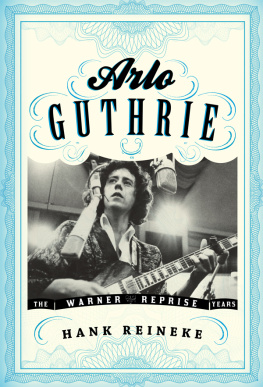

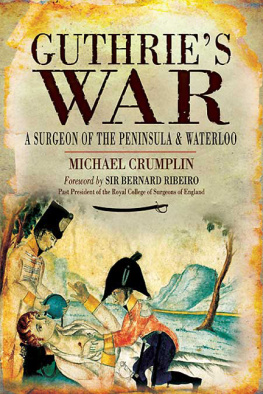
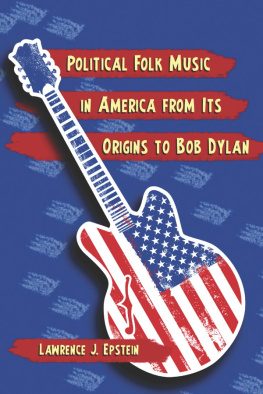
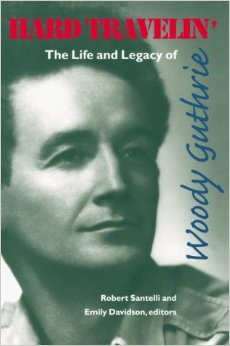
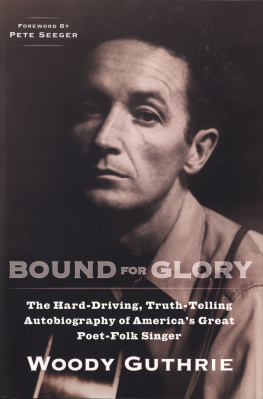
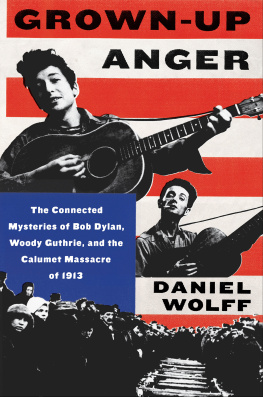
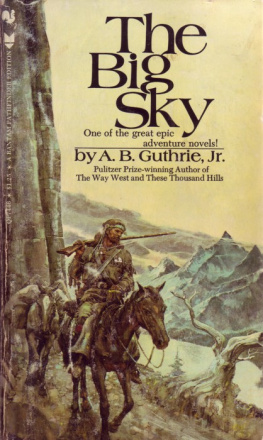

 The paper used in this publication meets the minimum requirements of American National Standard for Information SciencesPermanence of Paper for Printed Library Materials, ANSI/NISO Z39.48-1992.
The paper used in this publication meets the minimum requirements of American National Standard for Information SciencesPermanence of Paper for Printed Library Materials, ANSI/NISO Z39.48-1992.